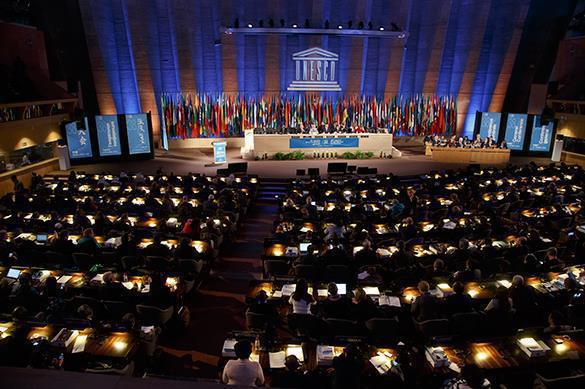UNESCO report shows empowering women has huge benefits for the environment
Paris, 4 October-Education is essential for empowering women to achieve gender equality, which in turn is vital for sustainable development. This is confirmed in a new Gender Review by UNESCO's Global Education Monitoring Report, released one week before International Day of the Girl Child (October 11) at an event in Paris.

The review shows that countries with more women in parliament are more likely to ratify environmental treaties. Education can empower women to become leaders as they acquire literacy, confidence and communication skills. It can give them a space to learn about and practice leadership. Further education and professional, technical and legal training also help women to gain credibility and influence among leaders and decision-makers.
Fewer than 20 per cent of leaders are women
However, at present fewer than one fifth of the world's heads of state, prime ministers and government ministers are women. Despite recent improvements in women's political representation, they still occupy fewer than 25% of national parliamentary seats worldwide.
"Significant and transformative action is required to redress deeply embedded and complex gender inequalities that impact people within and beyond education and prevent the achievement of gender equality," said UNESCODirector-General, Irina Bokova. "Whether society manages to reform in line with these recommendations will affect the empowerment of women and girls and, ultimately, the realization of sustainable development."
Education, education, education
Education, especially that of girls and women, would curtail the population growth, which is putting great strains on the planet. In sub-Saharan Africa, women with secondary education on average have three fewer children than those with no education at all. Educating boys and men about sexual and reproductive health is also important. In Kenya, a four-year programme working with men on responsible sexual behaviour saw school pregnancy rates drop by two-thirds.
Sustainable development also requires addressing deep rooted discrimination and disadvantages in the workplace the world over. Women do more unpaid work than men and occupy less secure positions. Women and men tend to work in different sectors and those dominated by men tend to provide better pay and social status than those employing a large percentage of women. This is linked to subject choices in higher education where strong gender differences can be observed: women make up 70% of those choosing to major in education, but only 25% of those choosing engineering and computer science.
Gender inequality in employment and pay can be addressed through policy and legislation, but also by engaging men and boys in challenging discrimination, ensuring all have equal opportunities to access education, and giving second-chance education to women who dropped out. Teachers can help break occupational stereotypes; mentorships and scholarships have been used in countries like the United Kingdom, Kazakhstan and Lebanon to encourage women to take up science, technology, engineering and mathematics (STEM) subjects.
Greater equality in education is needed to help break down gender barriers in society. This means assessing what and how children are being taught. The Review shows that fewer than 15% of countries' curricula frameworks include material on gender empowerment and only half mention gender equality. The issue of child marriage is omitted or poorly addressed in textbooks in many of the countries where it is most prevalent, including Kenya and Malawi.
Aaron Benavot, Director of the GEM Report: "Educating men and boys to challenge conventional gender norms is equally important than educating girls. But educational experiences need to be reinforced by what happens in the home, in the workplace and in politics. For substantive gender equality, we need to work together to tackle the deeper obstacles holding girls and young women back."
The 2016 GEM Review provides recommendations on how to work for gender equality in education and tackle the gender stereotypes that are holding back sustainable development:
1. #Equalitymeans much more than equal numbers of boys and girls in school. We must count the number of child marriages and adolescent pregnancies, monitor who has a say in family planning, working conditions, the percentage of women in leadership positions, and analyse teacher training and what textbooks and curricula are teaching our children every day.
2. Institutions outside of education systems should promote gender equality through laws and policies protecting maternity rights, and improving equality in the workplace.
3. Those working on gender equality in education and gender equality in general should collaborate. A working group - including UNESCO, UNGEI and UN Women - should be set up to help advance the measurement of gender inequality.
Source: UNESCO
Subscribe to Pravda.Ru Telegram channel, Facebook, RSS!




